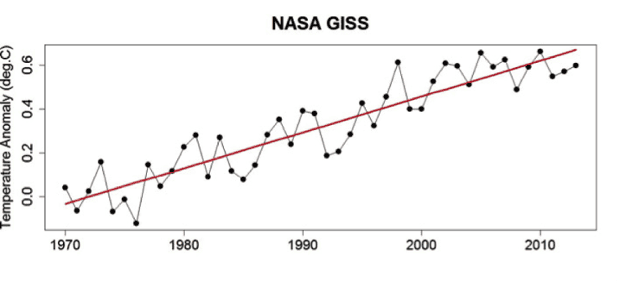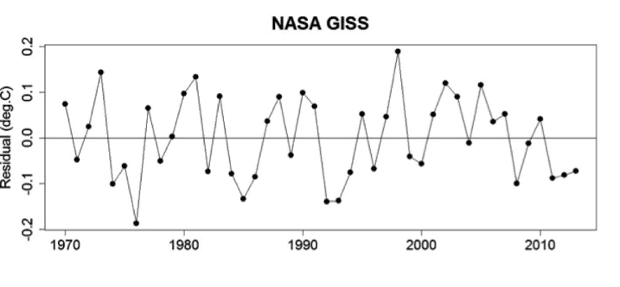
A new study has just been prepared for an upcoming climate meeting of the US Climate Variability and Predictability Program. This group has an annual summit and this year will have a special science session with papers and presentations devoted to the so-called “hiatus”. The “hiatus” has taken many meanings. In the popular press, it is often used to falsely claim that global warming stopped. As I’ve written many times, global warming has not stopped; the Earth has been continuing to gain energy because of human emissions of greenhouse gases.
In other cases, the “hiatus” refers to a reported slowdown in temperature increases. This too is not seen in the ocean data or in sea level rise. It is only seen in surface temperatures (temperatures of the surface of land and ocean regions).
What my colleague and I wanted to know was, is this slowdown real or not? Specifically, we wanted to know whether it passed mathematical tests for statistical significance. My colleague, who is an expert is statistics, and operates a climate website, downloaded the surface temperature data from NASA and detrended it (removed the long term increase in temperatures). The difference between the red trendline and the black dots is called the residual. We wanted to increase the odds that we would find a “hiatus” by stopping our analysis in 2013 (omitted the hottest year on record, 2014).

NASA temperature anomalies from Foster and Abraham, 2015.
If you plot the residual over this time period, it looks like the image below.

NASA temperature residuals from Foster and Abraham, 2015.
We wanted to know whether there is any trend in these residuals. If the global warming trend had slowed recently, you would expect residuals to become more negative. We found that there was no statistically significant change to the residuals since 1970.
Next, we grouped years together into groups that ranged from 3 years long to 20 years long and searched for changes to the residuals in those groups. Again, we found no significant change. Our findings are best summarized by our concluding paragraphs.
Posted by John Abraham on Monday, 3 August, 2015
 |
The Skeptical Science website by Skeptical Science is licensed under a Creative Commons Attribution 3.0 Unported License. |